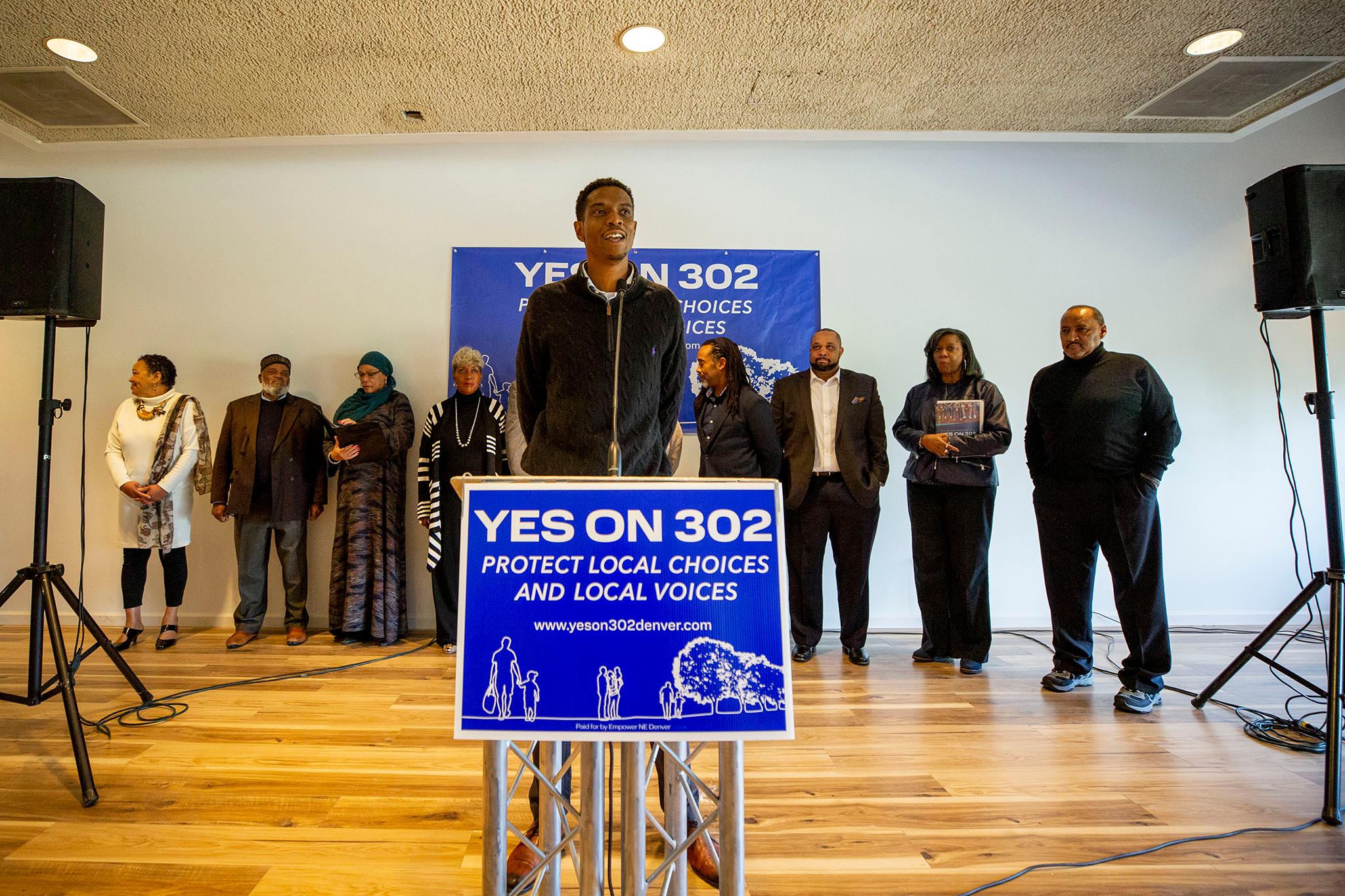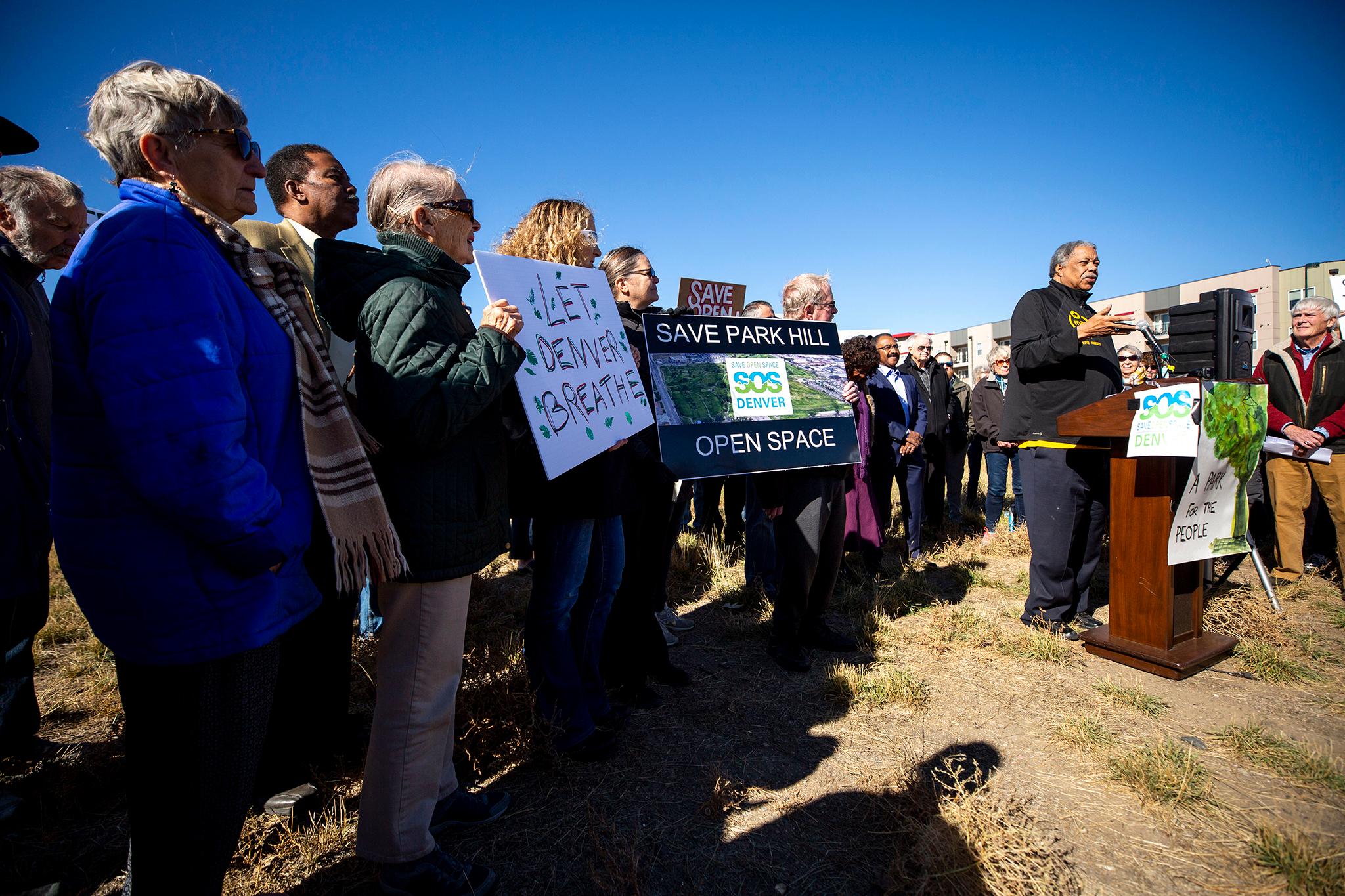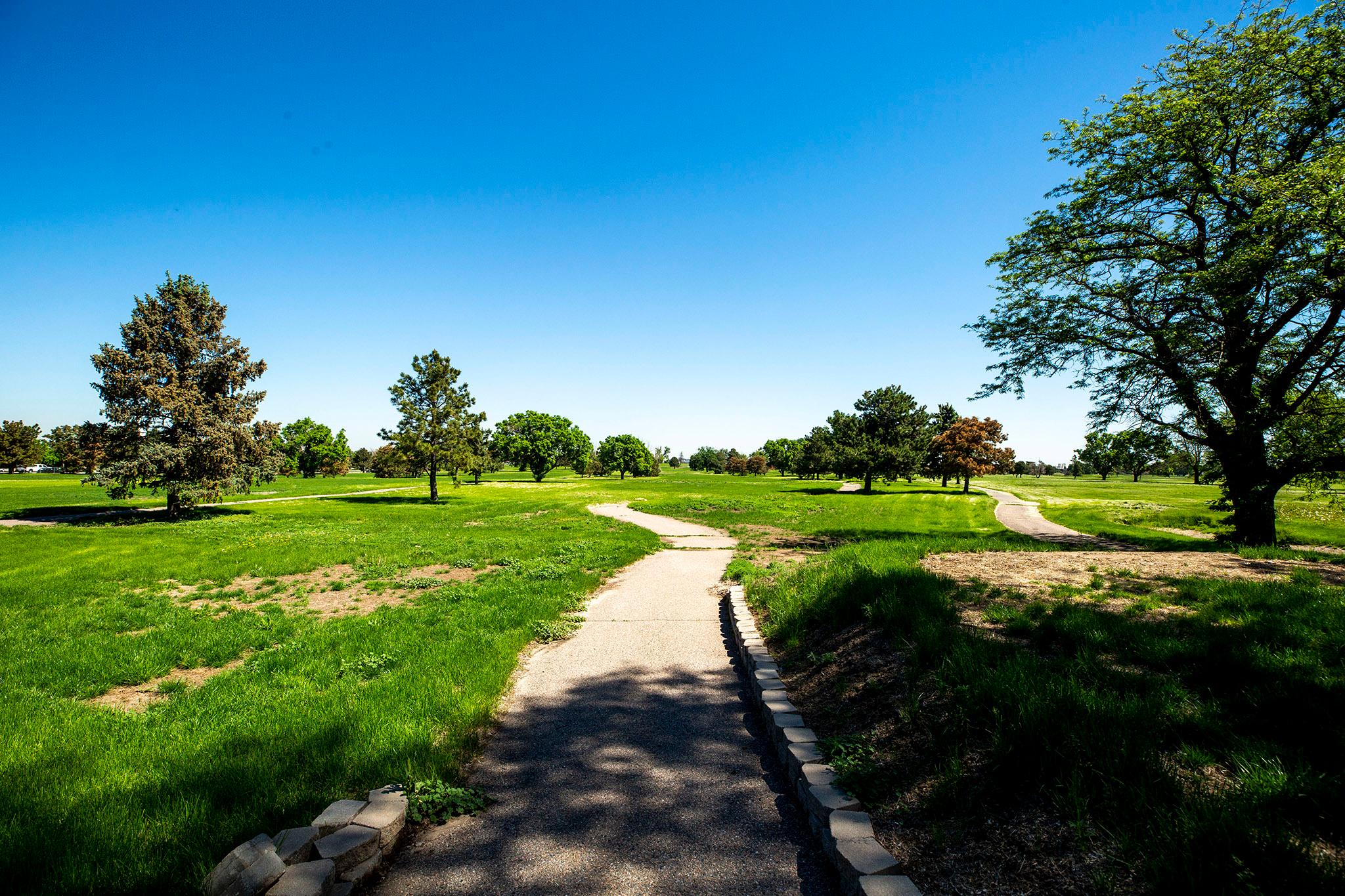A lawsuit filed in June to stop the planning process for the redevelopment of the Park Hill Golf Course was tossed out on Wednesday by Judge Ross B.H. Buchanan in district court.
The rationale: The group that filed the lawsuit, Save Open Space Denver, didn't have legal grounds to do so. The merits of the SOS case went largely unexamined.
The now-shuttered Park Hill Golf Course, 155 acres of land protected by a voter-approved conservation easement, was purchased from the nonprofit George W. Clayton Trust for $24 million by the developer Westside Investment Partners in 2019. The company set out to build a mixed-use development on the site, with housing and retail. But the conservation easement, which states that the land should be protected as a golf course, is a major obstacle in pulling off the plan.
For the City, the conservation easement wasn't a barrier to launching a public planning process about the commercial redevelopment of the site.
Despite the conservation easement, the City's planning department started working with the developer to map out the future of the space. That included looking at various possibilities, such as the construction of 950 to 1,900 residential units, a grocery store, 30,000 square feet of retail and up to 20,000 square feet of office and commercial space on the property, according to the suit.
But new homes and retail didn't interest the community activists who formed Save Open Space, which has used multiple tools to stop the redevelopment of the 155 acres. The planning process itself, advocates said, violated state rules about conservation easements.
In addition to the lawsuit, Save Open Space tried to block Westside's plans by launching a ballot measure that would require any change to a conservation easement to go before voters.
While the measure didn't mention the golf course, the campaign sure did. The activists argued the Westside project was fueled by greed, would turn the golf course into parking lots, take away potential park space from the community, gentrify the neighborhood, and chop down trees that served as lungs for the city. Instead, the land should remain open space, they argued.
Westside, in turn, argued the project would serve the neighborhood with mixed-income housing, including an unspecified number of income-restricted units. A grocery store in Northeast Park Hill, which has been a food desert for decades, would be part of the project. Far from paving the area, a large park could be included in the design. The developer's argument went like this: Greater density would lead to greater affordability, and income-restricted housing would keep Northeast Park Hill's longtime Black residents in the increasingly pricey and whiter community. The neighborhood itself -- not citywide voters -- should determine the fate of the area through the City's planning process.

To ward off Initiated Ordinance301, proponents of the redevelopment of the golf course launched a second ballot initiative, Initiated Ordinance 302, which would have changed which conservation easements would be considered by a citywide vote. No surprise: The Park Hill Golf Course easement would not require a vote.
Ultimately, 63.55% of voters approved Initiated Ordinance 301, taking the future of all conservation easements into their own hands. The developer-backed I-302 failed, with 62.59% of the voters shooting it down.
The lawsuit accused the City and the developer of being in cahoots to undermine the legal protection of the land.
The lawsuit itself contended that the City, by planning the development alongside Westside, was using taxpayer dollars to enter into a collaboration with the developer that should not have occurred without a judge officially terminating the conservation easement. Doing so, the suit argued, violated state rules about conservation easements.
The city, the plaintiffs argued, was being run by developers, not the will of the voters expressed in the conservation easement.

The lawsuit's plaintiffs include heavyweights like former Mayor Wellington Webb, activist Jeff Fard, former Councilman Rafael Espinoza, former State Senator and Denver mayoral candidate Penfield Tate IIII, and others. The filing named the City and County of Denver, Mayor Michael Hancock, and Community Planning and Development head Laura Aldrete as defendants.
The judge's decision to throw out the lawsuit was based on the notion that the plaintiffs lacked the grounds to file it to begin with because they had no legally protected interest in the easement. Even if they did, the judge decided, they would not be eligible for relief.
The City used the occasion of the lawsuit's dismissal to blast Save Open Space, describing the organization as a small group trying to undermine a public process.
"A core function of local government as a steward of the public lands is to seek input from the community on how they want that land used," said City Attorney Kristin Bronson in a statement. "The public process to this point has found near-universal support for discontinuing the operation of a functionally obsolete golf course on this land. If and when it is determined that a change of use is appropriate, the community will have an opportunity to weigh in on that decision through their elected officials and a direct vote. Narrowly-focused organizations that purport to represent the community are no substitute for the city's broad-based, extensive, and fair community outreach effort."
But the fairness of that public process was put into question in January when Denver Parks and Recreation and Community Planning and Development axed Save Open Space's seat, held by Lisa Calderón, from the Park Hill Golf Course Steering Committee, arguing the group had no place in a process the advocates fundamentally opposed.
"Given Save Open Space's stated disagreement with the prevailing vision and the visioning process to this point, we believe that further participation by Save Open Space as part of the committee would only result in further discord within the community and would not be a valuable use of the committee's or your organization's time," Parks and Recreation head Happy Haynes and Community Planning and Development head Laura Aldrete wrote to Save Open Space, explaining why it had lost its seat. "We expect and encourage Save Open Space to remain involved through other community engagement avenues, and we will continue to respond to input and questions. At this point, however, the steering committee is not the venue for those discussions."
Save Open Space shot back that the move to boot Calderón and the group's seat was fundamentally antidemocratic.
"It's about as subtle as a heart attack," Calderón told Denverite. "We hear they don't want my voice as a strong opponent of the initiative as well as any representation from SOS Denver to be part of their so-called visioning process."
While the news about the lawsuit comes as a defeat for Save Open Space's campaign to stop the redevelopment, the advocates are celebrating one part of the judge's decision, which reinforces the power of the conservation easement: "The court determined that the 2019 amendment to the conservation easement statute appears to "severely constrict the grounds upon which a conservation easement can be terminated, released, extinguished, or abandoned, and to create the requirement of a court order to that effect," the group wrote in a statement.
Tate had the following to say about the decision: "While we are disappointed by Judge Buchanan's decision, we are not going to be deterred in our fight to let the people decide what happens to the Park Hill Golf Course land -- not a developer and not a city run by developers.
"To be painted by the city as a group of people fighting to save a defunct golf course is just more of the same false rhetoric," Tate continued. "We are fighting to preserve the land consistent with the open space and recreational conservation purposes of the conservation easement."











